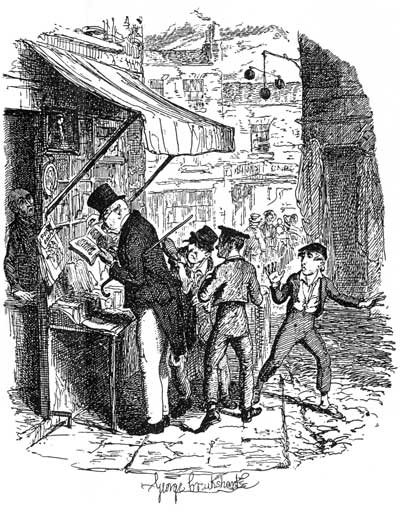
From the fictional Jack Sheppard to the band of boys running the streets in Dickens’ Oliver Twist, tales of juvenile delinquents were abundant and accused of being the cause of an increase in young offenders during the nineteenth century.

Even today with no help to social media, children are easily impressionable, so with the circulation of these fictional tales during the nineteenth century it was no wonder that the rise in prosecutions of young offenders may have been a result of this type of literature. In 1837, the Juvenile Offenders Act was introduced, which meant that children below the age of fourteen years could be tried at the petty court and were guilty until proven otherwise. However, before this was brought into place during the fourteenth and eighteenth centuries, children below seven years of age were presumed to be innocent therefore could not be held criminally accountable.
Major concerns began to spread throughout nineteenth century society, and upon reflection from a contemporary point of view peaks in this ‘Victorian creation’ would often coincide with periods of social instability, for example war or mass unemployment.

Boys who were found guilty of their crimes were sent to their nearest gaols and sequestered from the older criminals in fear that they would somehow be contaminated, or morally tainted. Upon their imprisonment many were expected to participate in interviews with the officers that worked in the prisons. In the Report from the Select Committee on Criminal and Destitute Juveniles (1852), the boys’ backgrounds and upbringings were investigated as a way for the police to determine the causes of their crimes. In the minutes of the report, an assumption is made regarding the juveniles’ families, describing them as a ‘class who have no friends, and often no parents from whom anything could be recovered’, a generalisation which the officer admits gives them an ‘easy means of dealing with them’. In the reports from the interviews on page 409, it seems as though knowledge of the boys’ backgrounds helps determine their treatment in the gaol, their punishments and their rewards.

Evidently, the impact of fictional literature was much greater on the boys living in more urban and industrialised cities, those that lived in more rural areas found literature to be less accessible, therefore less fictional literature was being circulated in these areas and so less children were influenced to participate in crimes. The report of the minutes states how ‘agricultural pursuits’ helped to reduce crime or criminal intentions, meaning it would be an effective way of reforming young offenders (pg 14).
Assumptions have clearly been made in relation to the causes of the crimes committed by juveniles, these assumptions being the effect of a particular home environment during the earlier parts of their lives. These assumptions are that the young offenders’ families all fall into the categories of working class, criminal and uneducated. Although, underpinning all of this is the inherent notion that these boys are not religious, or at least not practising the Christian faith, one of the reports states how a boy’s parents are ‘long out of unemployment’, ‘both drink’ and ‘never go to a place of worship’ (p.409) therefore this would have been acknowledged at the time as a direct influence on their son, who was sixteen years old and had been in prison for twice at the time of this report.
http://www.victorianweb.org/art/illustration/cruikshank/js10.html
Report from the Select Committee on Criminal and Destitute Juveniles; together with the proceedings of the committee, minutes of evidence, appendix and index. 1852. Minutes pages 7-21. Reports pages 409-427.